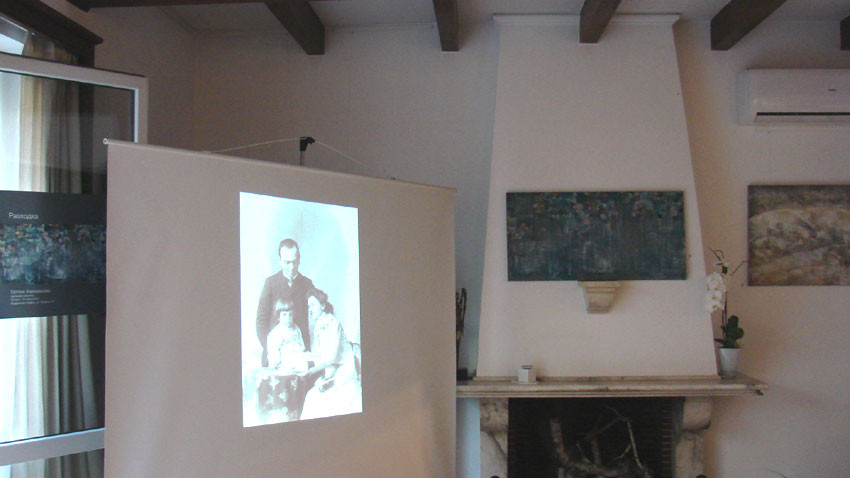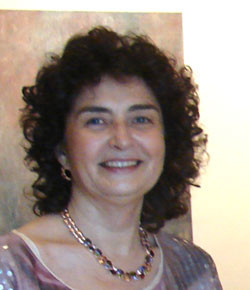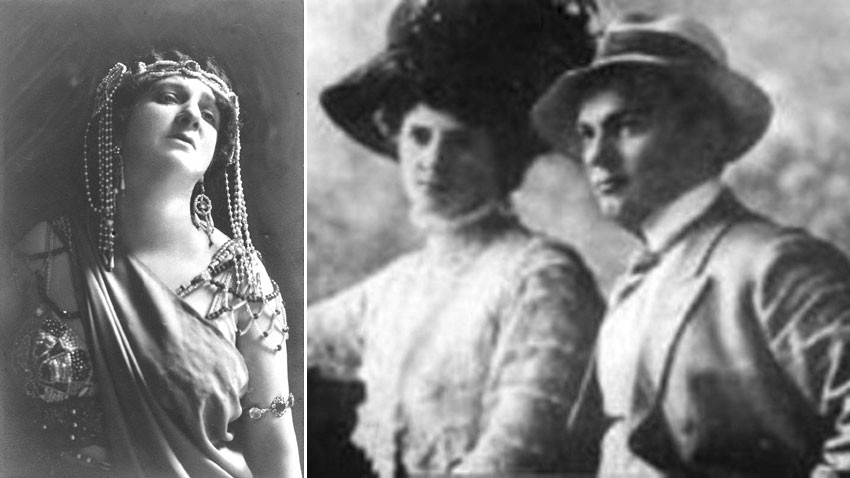On September 17, Sofia citizens celebrate the Day of Sofia - the city designated as the administrative centre of post-Liberation Bulgaria in 1879. Thanks to talented Bulgarians who received an academic education abroad, the young capital attained its cultural image, which quickly reached the level of the other Central and Western European capitals.
As we walk through the central streets of Sofia, we gaze with admiration at the small charming houses which have preserved the signature style of renowned architects from the late 19th and early 20th century. Although different in style, they stand out among the cold modernist outlines of the new urban environment. Cosy and mysterious, they attract you with the history of their former inhabitants. And in the old quarter of Lozenets, the houses boasting a rich history have inspired quite a few novels. One of these houses has been for a year now the gathering place for Sofia citizens fascinated with the tranquillity and harmony pervading the place. Maybe what makes them come back again and again for the next event is the spirit of one of the most remarkable Bulgarian actresses from the beginning of the 20th century. Residents of the neighbourhood call it Adriana Budevska's house, and in the cultural posters it is gaining popularity with its new name inspired by the capital. And just because it is located in the neighbourhood of poets, actors, writers and journalists, “The House of Sofia” is the perfect place where we can immerse ourselves in their stories and bring them back to life.

 “This is a space imbued with its authentic atmosphere”, says journalist Magdalena Gigova, researcher of the life stories of distinguished Bulgarians. "Even I feel that the grand piano there sounds different than anywhere else, just because of the spirit that's present inside. Whatever type of event is taking place in this house, it is as if some invisible power supports it, and people perceive things very differently."
“This is a space imbued with its authentic atmosphere”, says journalist Magdalena Gigova, researcher of the life stories of distinguished Bulgarians. "Even I feel that the grand piano there sounds different than anywhere else, just because of the spirit that's present inside. Whatever type of event is taking place in this house, it is as if some invisible power supports it, and people perceive things very differently."
It is namely here that Magdalena Gigova lifts the curtain to remind us the dramatic past of the great actress:
“This is the woman who played more than a hundred theatre roles. She was truly exceptional. At the age of 17, Bulgarian writer Ivan Vazov and Prof. Ivan Shishmanov discerned her talent and sent her to study with a scholarship at the Imperial Theatre in Moscow."
The school had its influence on her and for the rest of her life Budevska played theatre role in Stanislavsky's classical Russian style. This, however, did not stop her from appearing half-naked on the stage of the National Theatre in Sofia in January 1921. She was the first Bulgarian actress who dared to perform undressed like Dalila in Vladimir Musakov's drama of the same name. The hall was crowded, whether because of the rumour of the expected show or because of her incredible talent, all eyes were on Adriana. “She appeared on stage in a fine body-coloured leotard, sprinkled with white and black pearls and aquamarines”, says Maggie Gigova. "The corset was a real piece of art. Her breasts were covered by a transparent silk brassiere embroidered with precious stones. The navel was covered only with pearls, and from the waist down, ethereal tissue descended."

She played this part when she was at the age of 43, but even critics commented she looked like a 20-year-old. Her brilliant acting cleverly concealed the deep depression she suffered from after the death of her husband Hristo Ganchev, an actor like her. With him she experienced an incredible love romance overflowing into creative unity. Together they used to rehearse and study their parts, but after his death on the warfront at the beginning of the First World War joy disappeared from her life. Shortly after the painful loss her new-born daughter died. Then, in Italy, one of her sons was shot dead and the other emigrated to Buenos Aires. She remained alone and continued to play in the National Theatre. The audience adored her, compares her to Sarah Bernard because she used to play the most complicated roles with ease, but that did not suffice to fill her lonely soul. Her career ended when she retired at the age of 48 and she left Bulgaria to live with her son. At 70 she returned to Bulgaria only to liv her last days in her house on Midjour Street, which has forever preserved the power of her spirit.
English version Rossitsa Petcova
Photos: Darina Grigorova and archiveExactly 3 years ago, on February 24, Russia’s invasion of Ukraine began – an event that woke up Europe 77 years after the end of World War II and called into question one of the main goals of the EU – preventing a new armed conflict on the continent...
The festive service for the consecration of the new Bulgarian Orthodox church in London is led by His Holiness Daniil , Patriarch of Bulgaria, who also officiated at the Ressurection Vespers on Saturday. Hundreds of lay people-official guests and..
The Martenitsa Festival was held in Brussels f or the third consecutive year . Cultural organizations from Bulgaria, Romania and Moldova presented their country's traditions related to the "Baba Marta" holiday, which heralds spring. The initiative..
The festive service for the consecration of the new Bulgarian Orthodox church in London is led by His Holiness Daniil , Patriarch of Bulgaria, who also..
The Martenitsa Festival was held in Brussels f or the third consecutive year . Cultural organizations from Bulgaria, Romania and Moldova presented their..
Measurement equipment installed at the Bulgarian Antarctic base "St. Kliment Ohridski" has been collecting valuable data on solar activity and its..

+359 2 9336 661
